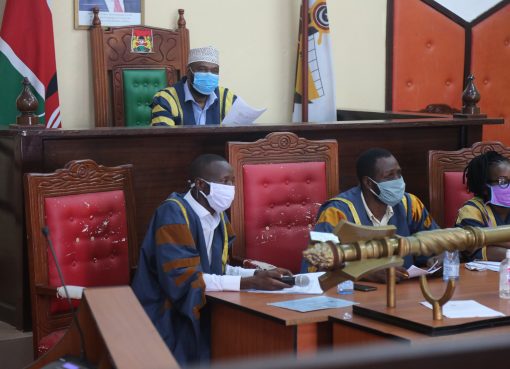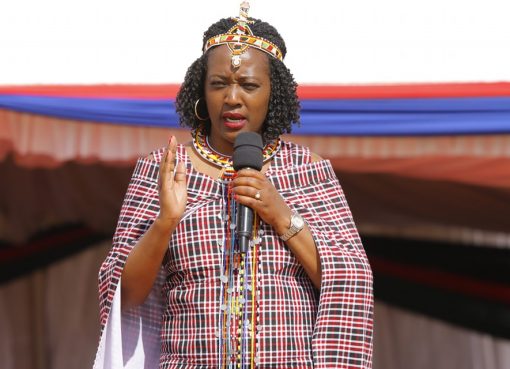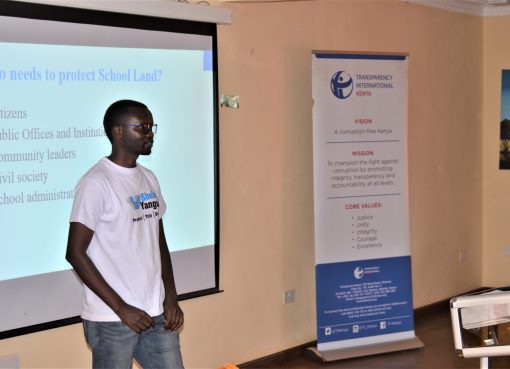Hardly a day goes by without a case of suicide being reported in the media. Of concern, however, is that most of the cases reported are of men ages between 35 and below.
According to Juma Hemedi, Founder of a Non-governmental Organisation AJIBIKA AFRIKA, which deals with programs geared towards empowering the boy child, the mental health issue needs to be addressed at all levels including family, institutions of learning, work place, churches, mosques, and social gatherings.
“I acknowledge that we have a serious problem of mental health issues. But everything has its genesis and the correct place to begin would be to look at the family history. Most of the cases of suicide we have been reading about in the media have been involving men and these men are young. Young men of up to 25 years of age have been the victims of suicide,” notes Hemedi.
He further notes that a young man of 35 years today was born around 1984 and the one who is 30 years was born around 1989. It was during those years that the issues of empowering girl child took off after an international conference meeting in Beijing that sparked off women empowerment revolution.
Media attention, community and resources were trained on highlighting the plight of girls, institutions of higher learning were instructed to lower the entry marks for degree programmes for girls. Secondary schools too would follow suit and the entry to national, provincial and district schools was a real struggle for boys but made easy for girls.
“Empowerment opportunities for girls were enhanced and stepped up, such that even job opportunities were now engendered. All this was happening at the expense of the boy who society still expected to man up,” explained Hemedi.
The dye was cast, gender wars had begun, but the preparation for that battle was skewed, meaning women were better placed and trained to socially deal with life challenges than their menfolk.
“We have also witnessed the institution of marriage being under siege, as women are increasingly demanding for more since they have been exposed to ’empowerment seminars’ that hyped them that: ‘what a man can do a woman can do better’,” he further revealed.
Hemedi pointed out that societal demands continue to place a disadvantage to the men, adding that if a man has no money, society writes him off and consequently dents his image as a man.
“The reality of the neglect of the boy child is noted when they hit 30 years and are supposed to get married and start a family. Since they don’t have essential life and social skills to deal with the challenges most of them bury themselves in alcohol and drugs or they end up on the obituary pages of the local dailies and the growing statistics of suicide,” he lamented.
Hemedi suggests that the government should bring down all the institutional, social and structural barriers that make it hard for men to play their God given role. He opines that disparities that exist in learning institutions admissions both in universities and secondary schools should be discarded and provide a level playing ground for both sexes.
“We cannot have different entry cut off points at all levels of education and expect that there would be equitable responses to life challenges,” he noted with concern.
He further recommends that single gender schools should be abolished and secondary school made mixed as soon as is practically possible, this would eliminate the feeling that one gender is more special than the other one mixed.
“The government, donors and civil society organisations must begin to direct resources towards boy child empowerment programs to boost their self-esteem and restore their confidence which has currently been eroded by the challenges of life,” he added.
Hemedi concludes by advocating that society goes back to what used to work in the African cultures regarding leadership, succession, and training of boys as the defenders and custodians of customs, tradition and family name.
“If the African traditions are restored and the rightful place of the boy child emphasized, suicide cases will decrease and the male gender will start reinventing himself all over again,” he says.
Hemedi adds that AJIBIKA AFRIKA has come up with a mentorship program christened ‘My brother’s keeper’ which seeks to help the boy-child in realising their hidden potential by learning through specific role models.
KNA also engaged psycho-social Counselor Gladys Chania who advised Kenyans to speak out to avoid sinking into depression that could cause them to taking away their lives.
Ms Chania pointed out that she handles between 4 – 5 cases of suicide and related complications a week and attested that suicide especially amongst the male gender was becoming a major challenge that needs to be dealt with urgently.
She advised victims of depression to reach out to someone they can open up to as doing so, helps them to identify their stressors and identify constructive ways to manage them.
“Speaking out makes worries less scary as opposed to bottling them inside as when the problem is underlying thoughts of self-pity and hopelessness can lead to self-destruction,” she said.
Chania further called on the society to reach out to people that display symptoms of depression and talk to them adding that depressed people do not know that they have an emotional problem but those close to them can.
“It’s just a matter of time before a depressed person becomes suicidal and is therefore very important for every Kenyan of goodwill to be on the lookout for their loved ones who display tendencies of stress and compel them to look for professional help. Churches too should chip in and assist and such people should not be stigmatized as they are not mentally ill,” she said.
She revealed that a research by WHO whose findings were made public late last year showed that the number of suicides reported in Kenya in the last 10 years rose to 421 in 2017 which was a 58% increase.
“More than 20 cases of police officers who killed themselves and their loved ones were reported in 2018 and even cases of very senior persons in the community taking their own lives due to undue pressures in their work places and within the families have also been reported. This is an indicator that something urgent needs to be done,” she concluded.
By Lucy Wangai





